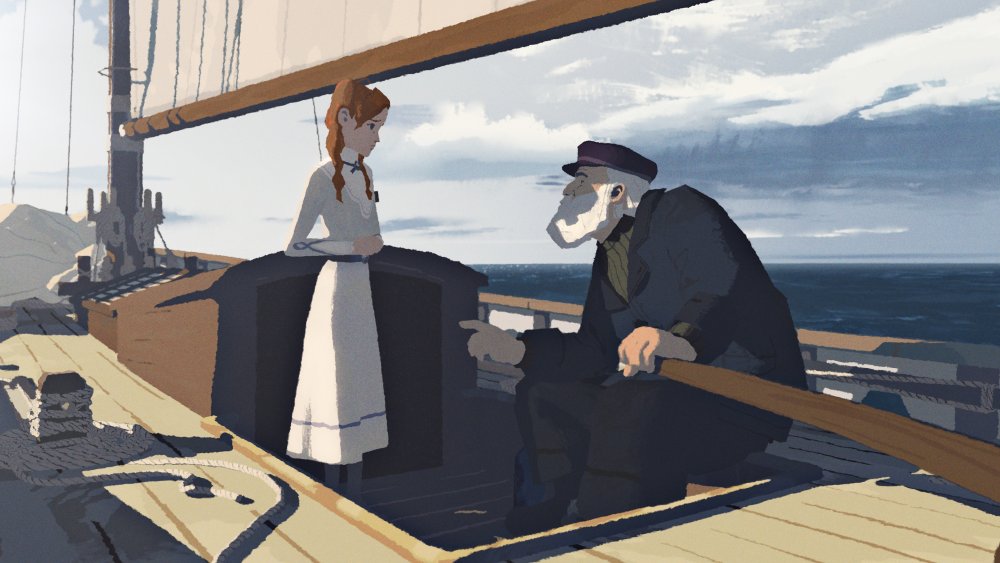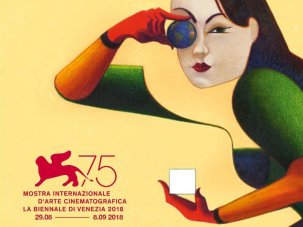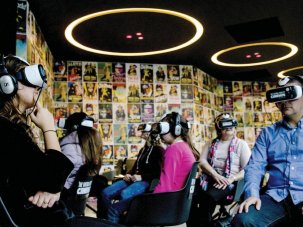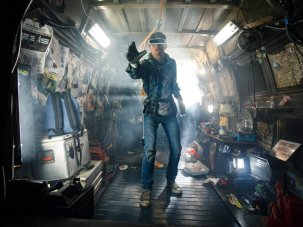Last year, the Venice Film Festival’s inaugural Virtual Reality competition brought together an almost comically varied assortment of cutting-edge narrative experiences, with Tsai Ming-liang’s The Deserted, an austere serving of 360-degree slow cinema, duking it out for awards alongside Alice, the Virtual Reality Play, a psychedelic puzzle game/private theatre performance. 2018’s offering was almost as eccentrically diverse, but the curators rectified a weakness of last year by dialling back on underwhelming live-action films presented via low-tech smartphone-powered headsets, and placing a slightly greater emphasis on more elaborate interactive installations.
Venice Virtual Reality 2018 ran 29 August–8 September 2018 as part of La Biennale di Venezia.
For the VR-sceptical cinephile, Eliza McNitt’s Spheres is perhaps the easiest sell. Executive-produced by Darren Aronofsky, and acquired earlier this year at Sundance for a headline-making seven-figure sum, this three-part work sends the viewer on a 2001-esque voyage across the cosmos, complete with soothing narration by Jessica Chastain, Patti Smith and Stranger Things’ Millie Bobby Brown.
Spheres: Chorus of the Cosmos trailer
The first part engagingly literalises the ancient concept of Musica Universalis, immersing you in the hypnotic sounds of our solar system. As you wander freely through space, you’re encouraged to stick your head inside each passing planet, so that you can catch a glimpse of its landscape and hear its distinct music. I found the second instalment, which propels you into the centre of a black hole, a little too immersive for comfort – I’ve happily played VR games for hours at a time with no adverse effects, but this left me feeling slightly dizzy. And part three, which charts the origin of sound, is a touch heavy-handed in the delivery of its underlying environmental message. But overall, it’s a potent blend of seductive power fantasy, innovative educational tool and hallucinatory cinematic experience.
Eclipse, by French production company BackLight, was the most straightforwardly enjoyable and technically impressive installation I sampled. Set on a spaceship in 2085, this four-player escape-room game forces you to work together to manage a series of crises, from a power outage to an onboard fire.
Eclipse trailer
Narratively, it’s a grab-bag of well-worn sci-fi tropes, with the continually malfunctioning vessel feeling particularly indebted to Ridley Scott’s Alien. But I was struck by how effectively the co-operative aspect mitigates against the isolating sensation of donning a VR headset, and the focus on simple puzzle-solving ensures that Eclipse is perfectly accessible to those not schooled in video game mechanics. Indeed, it would work just as well as a corporate team-building exercise as it would an amusement park attraction.
Marie Jourdren, creative director of last year’s Alice installation, returned with The Horrifically Real Virtuality. This was by some distance the most outlandishly inventive work on display, equal parts interactive theatre piece, hands-on filmmaking workshop and wry commentary on VR as a scrappy emerging art form.
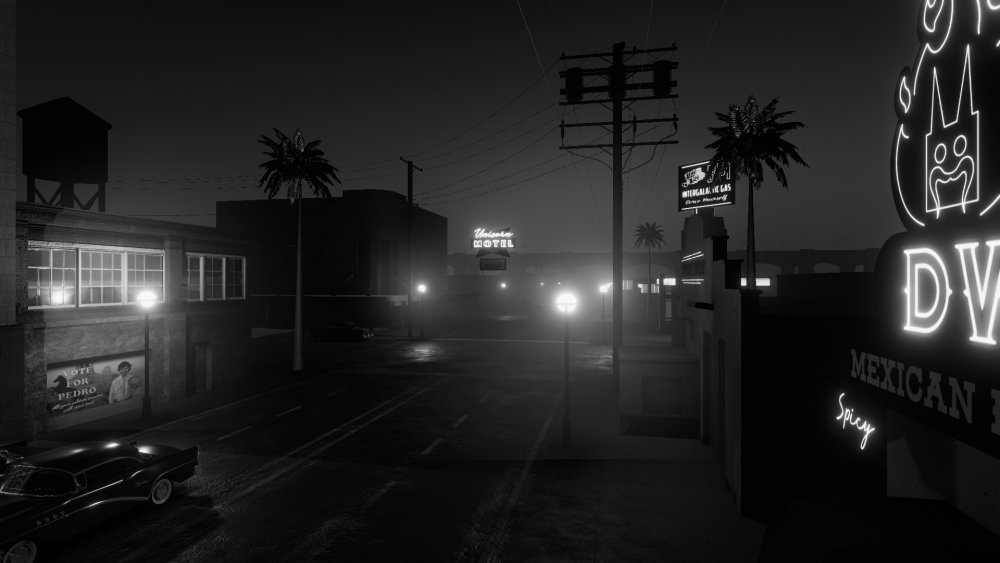
The Horrifically Real Virtuality (2018)
Ostensibly set in the 1950s, the 45-minute experience hinges around a fictional B-movie directed by Ed Wood and starring Bela Lugosi. As part of a group of six, I was invited onto a physical film set, and coerced by actors into assisting with the filming of the climactic scene – I was the designated cameraman, while my companions were tasked with overseeing sound effects.
Once the sequence, which anachronistically incorporates motion-capture technology, had been completed to Wood’s satisfaction, we were ushered into an Art Deco-style cinema reception, strapped into VR gear and instructed to take our seats to watch the finished film. What started out as a passive experience swiftly took a turn for the surreal, as we stepped inside the screen, were transported to a virtual manifestation of the set we were standing on moments earlier and promptly re-cast as characters in an alternate version of the scene that we’d just filmed. My session was beset by technical hiccups – the motion tracking technology in current consumer VR devices is fairly unreliable – but it’s a real pleasure to see creators utilising these new tools to experiment with narrative form in such a bold manner.
Age of Sail trailer
A couple of the more linear works offered the kind of gratifyingly immersive experience promised but rarely delivered by 3D cinema. Produced by Google, John Kahrs’ Age of Sail is a gorgeously stylised 360-degree animated short, which places you on board a sailboat in the middle of the Atlantic, and charts the rescue of a young girl who topples from a passing steam liner.
And the somewhat grittier 1943: Berlin Blitz sticks you in the cockpit of a Lancaster bomber bound for the German capital, and casts you as BBC war correspondent Wynford Vaughan-Thomas, whose breathless narration accompanies the nerve-shredding trip. With both of these experiences fresh in my memory the following morning, Damien Chazelle’s efforts to convey the terrifying thrill of space travel in First Man seemed somewhat tame and antiquated in comparison.
1943: Berlin Blitz trailer
Having now enjoyed two prolonged stints on Venice’s VR island, I’m still not entirely convinced that the festival is the ideal host for such a showcase. Based on the evidence here, it seems likely that the medium will disrupt the gaming, theme park and education sectors long before it makes much of a mark on mainstream cinema. But given the wealth of creative and commercial opportunities afforded by VR, I wouldn’t be surprised to see major new filmmaking talent emerge from this space in the coming years.
-
The Digital Edition and Archive quick link
Log in here to your digital edition and archive subscription, take a look at the packages on offer and buy a subscription.




